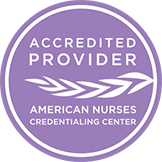An APRN practices with a supervising physician using established protocols approved by the physicians. They can prescribe, dispense, administer, or order any drug. The exception is prescribing or dispensing controlled substances; a master's or doctoral degree in a clinical nursing specialty with training in specialized skills is needed. When a patient is in a facility, the APRN can order any medication for administration.
APRNs initiate therapies for certain conditions and perform additional functions. They can order diagnostic tests and physical or occupational therapy. The scope allows APRNs to perform activities within their specialty, including managing selected medical problems and initiating, monitoring, or altering therapies for uncomplicated acute illnesses. They monitor and manage patients with stable chronic diseases, establish behavioral problems, diagnose, and make treatment recommendations (Regulation of Professions and Occupation [RPO], 2018).
A certified registered nurse anesthetist (CRNA) practices with a supervising physician using established protocols approved by the physicians. They provide care before, during, and after anesthesia. This involves determining the health status of the patient, risk factors, and anesthetic management. They make decisions about the appropriate type of anesthesia, order pre-anesthetic medication, and render the patient insensible to pain during the performance of procedures. Their practice includes regional, spinal, and general anesthesia, inhalation agents and techniques, intravenous (IV) agents and techniques, and hypnosis.
The CRNA orders or performs monitoring procedures while supporting life functions during anesthesia; this includes induction and intubation, using mechanical support devices, and managing fluid, electrolytes, and blood component balances. They recognize and treat abnormal patient responses to anesthesia, adjunctive medication, or other forms of therapy. CRNAs manage a patient while in the post-anesthesia recovery area. They also place special peripheral and central venous and arterial lines for blood sampling and monitoring (RPO, 2018).
A certified nurse midwife (CNM) practices with a supervising physician using established protocols approved by the physicians. When the delivery is performed in a patient's home, they perform superficial minor surgical procedures and manage the patient during labor and delivery, including amniotomy, episiotomy, and repair. They order, initiate, and perform appropriate anesthetic procedures. CNM practice also includes postpartum examination, ordering medications, providing family-planning services, and well-woman care. CNMs manage the medical care of a normal obstetrical patient and the initial care of a newborn patient (RPO, 2018).
A clinical nurse specialist (CNS) uses established protocols to assess the health status of individuals and families, diagnose human responses to actual or potential health problems, and coordinate health care. They also plan for health promotion, disease prevention, and therapeutic intervention. The CNS can implement therapeutic interventions including, but not limited to, direct nursing care, counseling, teaching, and collaboration with other licensed healthcare providers (RPO, 2018).
A psychiatric nurse practitioner uses established protocols to prescribe psychotropic controlled substances (RPO, 2018).
If registered for autonomous practice, CNMs may engage in autonomous practice. APRNs engaged in autonomous practice provide primary care, including family medicine, general pediatrics, and general internal medicine (RPO, 2020).
Autonomous practice nurses perform the general functions of an APRN related to primary care, admitting, managing, and discharging patients from the facility. They can provide a signature, certification, stamp, verification, affidavit, or endorsement that is required to be provided by a physician, except they may not issue a physician certification for medical marijuana. Autonomous practice nurses cannot perform any surgical procedure other than a subcutaneous procedure (RPO, 2020).







